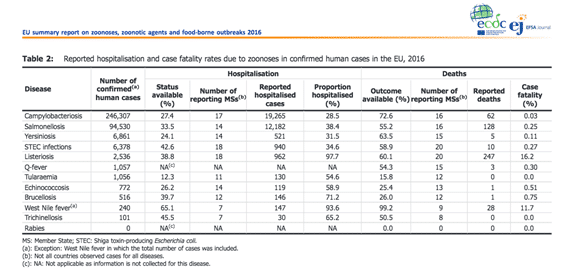Microorganisms are present in all foods, whether of animal or vegetable origin, fresh or processed. In most cases, these microorganisms are harmless to human health. However, some microorganisms can cause foodborne illness.
The best way to minimize the number of microorganisms present in food is through food safety practices. These practices include proper food handling, storage, and preparation.
Proper food handling includes washing hands and surfaces often, keeping raw and cooked foods separate, cooking foods to the proper temperature, and cooling and reheating foods properly.
Storage practices that help minimize the number of microorganisms present in food include refrigerating perishable foods, freezing meat and poultry, and storing dry goods in a cool, dry place.
Preparation practices that help reduce the number of microorganisms in food include avoiding cross contamination, using safe water and sanitary utensils, and washing fruits and vegetables.
- ¿Cómo se pueden evitar las bacterias en el contenedor de alimentos ¿Cómo se pueden evitar las bacterias en el contenedor de alimentos?Bacteria are everywhere. They’re in the air, on surfaces, and in water. Some types of bacteria are good for us and help us to digest food or produce vitamins. However, other types of bacteria can make us ill.The bad bacteria that can cause food poisoning are usually found in raw meat, poultry, and seafood. They can also be found in unpasteurized milk and dairy products, fruits, and vegetables that have been contaminated by feces (poop). These bacteria can also spread from person to person if someone who is sick coughs…
- ¿Por qué es necesario el análisis microbiológico de los alimentos Microorganisms are everywhere. They are in the air we breathe, on our skin, and in the food we eat. While most microorganisms are harmless, there are some that can cause serious illness. That is why it is important to have your food tested for microorganisms before you eat it.There are many different types of microorganisms that can be found in food. Some of these, like yeast and mold, can cause spoilage. Others, like bacteria, can cause foodborne illness.The symptoms of foodborne illness can range from mild to severe. They can include diarrhea, vomiting, fever, and abdominal cramps. In some cases,…
- ¿Cuál es la mejor manera de cocinar los alimentos para preservar sus nutrientes La cocina es una de las actividades más importantes en la vida diaria. No solo nos permite preparar nuestros propios alimentos, sino que también nos ayuda a mantenernos saludables. Sin embargo, muchas personas no saben cuál es la mejor manera de cocinar los alimentos para preservar sus nutrientes.Existen diversas formas de cocinar los alimentos, y cada una tiene sus propias ventajas y desventajas. Algunas de las formas más comunes de cocinar son la cocción, la fritura, la estofado, la plancha y el horno. Cada una de estas formas de cocinar tiene sus propias características y puede afectar los nutrientes de…
- ¿Por qué son las peores marcas de alimentos para perros No matter how much we love our dogs, there’s no denying that they can be picky eaters. And when it comes to food, not all brands are created equal. In fact, some of the most popular dog food brands are actually the worst for your pup.Many popular dog food brands use low-quality ingredients that can cause health problems down the road. Some brands even use harmful chemicals and artificial preservatives in their foods.So, why are these brands the worst for your dog? Let’s take a closer look.1. Purina OnePurina One is one of the most popular dog food brands on…
- ¿Por qué es importante usar un termómetro digital para alimentos A digital food thermometer is an important kitchen gadget for anyone who wants to ensure that their food is cooked properly. Here are four reasons why you should use a digital food thermometer:1. Temperature is everything when it comes to cooking.If you don't cook your food at the right temperature, you run the risk of undercooking or overcooking it. This can lead to dry, tough, or burnt food that is not only unappetizing, but can also pose a health hazard. A digital food thermometer takes the guesswork out of cooking by giving you an accurate reading of the internal temperature…
- ¿Qué pasa si la carne no está lo suficientemente cocida Desde hace mucho tiempo, se cree que la carne debe estar bien cocida para que sea segura de comer. Sin embargo, en los últimos años, algunos estudios han sugerido que la carne poco cocida podría no ser tan peligrosa como se pensaba. Esto ha llevado a algunas personas a cuestionar si la carne debe estar completamente cocida o si es posible comerla un poco más cruda.La carne contiene bacterias que pueden causar enfermedades. Al cocinar la carne, se mata a estas bacterias y se reduce el riesgo de enfermarse. Sin embargo, no todas las bacterias son eliminadas por el calor,…
